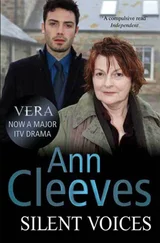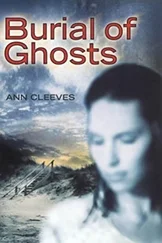When they were younger they’d been so close. Polly remembered the late-night conversations, the three friends squashed, half-sitting, half-lying, into a single hall-of-residence bed, a duvet tucked around them against the chill Durham night, drinking tea or chocolate or vodka, depending on the occasion. Then it had been a matter of honour that they had no secrets. They’d talked about all their dreams and fears in detail. Exposing their souls and their petty anxieties.
Now she was astonished at how far they’d drifted apart, how little of their personal lives they’d shared recently. Perhaps that had started with the move to London. London had demanded a gloss of sophistication and pretence. With their smarter clothes and their new friends, they’d developed different personas; suddenly they were competent, witty and self-sufficient. But now she thought that Eleanor and Caroline had always been actors, fitting into new situations in order to survive and excel. Perhaps they’d been performing as much in the draughty university bedroom as in the smart wine bars that had become their natural home in the city. It was likely that Polly, for whom the university experience had been a kind of magic, making her feel that she belonged with people of her own age for the first time, had simply been naive.
On the bed Polly laid out the bridesmaid’s dress she’d worn to the hamefarin’, folded it carefully and put it in the suitcase. She supposed that Eleanor’s dress would be kept as evidence, and in the end it would be destroyed. She looked out of the window. It was early evening and the fog was drifting in from the water again, blurring the horizon so that it was impossible to see where the sky ended and the sea began. In the room next door she heard the men’s voices. Marcus was being a saint. He hardly knew Ian, but he was supporting him, calming him, allowing him to talk. Allowing him to drink and to rant. Polly took a shirt from the wardrobe and folded that too.
She’d almost finished when Caroline and Lowrie arrived. She heard the door and their voices, wonderfully normal, and her mood lifted. The following day at this time she’d be on the boat south. Then she and Marcus would be alone in their own car for the drive to London. They could forget about Ian and dead people. Eleanor would have left Shetland without a second thought, in their situation. Polly had a tendency to be too introspective, and shutting herself away in her room wasn’t helping. She opened the door and went out to greet her friends.
They were dressed almost as if it was winter, in anoraks and boots, and Lowrie carried a rucksack that clunked with bottles when he set it on the floor.
‘You can’t spend your last night in Shetland tucked away in here brooding,’ Caroline said. Classic Caroline, prefect and social worker rolled into one. ‘We’ve got a plan.’
It seemed that a friend of Lowrie’s was a chef and he’d come across from Lerwick to set up a pop-up restaurant for the night in the boat club, in a settlement just down the coast. ‘A couple of miles’ walk to get us hungry,’ Caroline said. ‘Then great Shetland food, some good wine, and we’ll roll back before it gets too late. What do you think?’
Polly thought that whatever they made of the plan, the rest of them would go along with it. Caroline in this mood was unstoppable. And although they teased her for being bossy, actually they were usually glad to have someone to make decisions for them. Without her they would dither and nothing would get done.
And it seemed that Ian was up for an evening away from the house, was even the most enthusiastic of them. They put on their outdoor clothes and set out on the walk. The path took them past the spot where Eleanor’s body had been found, but nobody mentioned it. We’re so selfish , Polly thought. We care more about our own psyches than we do about our dead friend. We do what we must to survive intact.
When they arrived at the boat club the party was already in full swing. It was in a modern wooden building looking over a small marina, where small motor boats were tied to a line of jetties and the occasional grand yacht was moored. The club room was on the first floor and they left their outdoor clothes in the cloakroom downstairs. From the room came the sound of laughter, a gabble of voices. Polly had a moment of panic. She was an undergraduate again preparing to attend a formal college dinner, hesitating outside, sick with nerves, certain that she’d use the wrong fork, would blush whenever anyone spoke to her; that she would break one of those unwritten rules that set the educated middle classes apart from the rest. Waiting to go into the club room, she had the same physical signs of panic – the racing heart and sweating palms, the same instinct to run. Then it had been Eleanor who’d arrived, linked arms and swept her into hall before she could protest. Now it was Marcus, who gave a theatrical little bow, offered her his arm and walked with her up the stairs.
The room had been set out with two long trestle tables covered with white cloths and decorated with candles and flowers in glass vases. Boat-club members dressed in black were acting as waiters. It seemed as if everyone had been waiting for them, because there was a sympathetic cheer when they walked in, and Marcus – reading the situation immaculately as always – gave another, deeper bow. Caroline waved at people she knew. They were handed a small glass of whisky and took their seats at the end of the table. Lowrie pulled the bottles of wine from his rucksack. In the corner a young woman began to play a plaintive tune on the violin. Polly drank the whisky and found that her pulse had steadied. Food appeared on the table: fish and lamb, but in front of her a dish of roasted vegetables and a lentil-and-mushroom sauce, which, it seemed, had been cooked specially for her. The waitress even knew her name.
It took her a while to settle. She still felt that they were the centre of attention, and the inquisitive glances from other diners made her feel uncomfortable, thrown. As if she’d stumbled into a surprise party, only to realize that hers was the birthday being celebrated. She supposed the murders had made them objects of interest. Eventually, after a glass of wine, she began to relax and take in her surroundings. Marcus was having a great time. She saw that he viewed these social occasions in Shetland with the same clear, anthropological eye as when he’d shared supper with Berber villagers in Morocco. Perhaps he’d plan a trip here for rich American and German tourists, persuade the boat club and Lowrie’s friend to re-create this dinner just for them. She wondered if there might be something slightly patronizing in his attitude to his hosts; he was an observer rather than a participant and she sensed that he found the local customs faintly amusing. But then she was an observer too.
Lowrie and Caroline seemed to know most of the people in the room. Polly recognized some of them from the wedding party. There was Lowrie’s cousin, the chatty young woman with the baby, and her husband. All the talk was of the newly-weds’ move back to Shetland and the new house in Vidlin. Nobody mentioned the murders. Perhaps the frenetic jollity, the too-brittle laughter, were an attempt to cover the awkward fact that the hosts knew they could be entertaining potential killers. In lulls in the conversation Polly heard Caroline and Lowrie gossiping about mutual friends, university politics and illicit love affairs. It was as if Eleanor hadn’t died and normal life had been resumed.
Polly was sitting next to Caroline on one side and a large woman wearing a loose silk tunic in a vivid purple on the other. Caroline was talking to a friend across the table.
‘So you work at the Sentiman Library?’ The large woman in purple had a gentle voice, very musical and clear, despite the babble in the background.
Читать дальше












